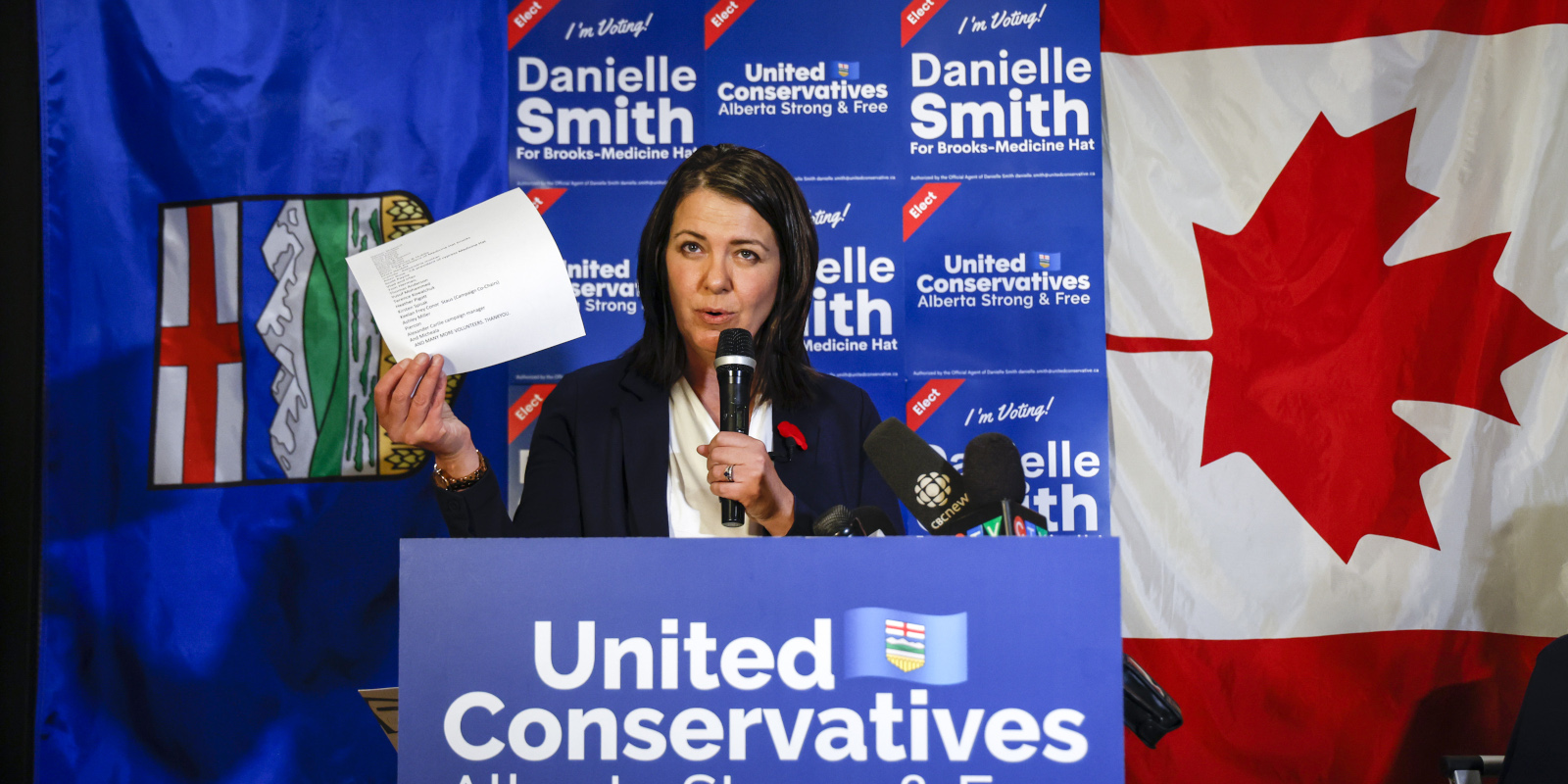At A Glance
- The bill would allow the cabinet to direct Alberta institutions—including police forces, universities, and hospitals—to ignore federal laws, including the Criminal Code of Canada
- “We’re not going to take anything off the table, but I’m also not looking for a fight,” said Prime Minister Justin Trudeau, who said the bill is “causing a lot of eyebrows to raise.”
- “An overall constitutional challenge to the act appears almost inevitable,” wrote Eric M. Adams, a professor in the University of Alberta’s Faculty of Law.
The Alberta Sovereignty Act has only made it through first reading in the legislature, but already has generated a swift tidal wave of commentary, even from its intended target in the national capital.
The bill was introduced in the legislature late on Tuesday, wordily titled The Alberta Sovereignty within a United Canada Act, and surprised some observers with its scope.
The bill would allow the cabinet to direct Alberta institutions—including police forces, universities, and hospitals—to ignore federal laws, including the Criminal Code of Canada. The legislature would activate the sovereignty act’s provisions by passing a motion declaring that an existing or anticipated federal law is unconstitutional or harmful to Albertans. What constitutes “harm” is left undefined.

Most controversially, the act also features a “Henry VIII clause,” which seems to give cabinet the power to unilaterally amend provincial laws. That provision sparked criticism from the prime minister on Wednesday.
“We know that the exceptional powers that the premier is choosing to give the Alberta government in bypassing the Alberta legislature is causing a lot of eyebrows to raise in Alberta and we’re going to see how this plays out,” said Prime Minister Justin Trudeau on Wednesday. “We’re not going to take anything off the table, but I’m also not looking for a fight.”
On Wednesday, the province pushed back on that interpretation, which had also attracted criticism from constitutional experts, saying that the bill doesn’t “permit cabinet to unilaterally amend legislation without those amendments being first authorized by the legislative assembly.”
Any changes made by cabinet must be specifically outlined in a resolution that has been approved by the legislature, the government said, in a press release.
“The rationale for this process is simply to allow the legislative assembly a tool to act swiftly and efficiently in protecting Albertans from federal initiatives that violate the constitutional or Charter rights of Albertans or which otherwise harm the interests of Albertans,” reads the release.
Karamveer Lalh, a Hub contributor and lawyer with an Edmonton area law firm, said the bill is “hardly radical.”
“I’m not clear as to how this bill, as I understand it, particularly allows Alberta to be more ‘sovereign.’ Instead, it just allows the Alberta government to declare to the federal government that they are stepping on their proverbial toes: the Alberta Government still expressly states that they would respect any court ruling,” said Lalh.
At a Tuesday press conference, Alberta Premier Danielle Smith said the bill was intended to “reset the relationship” with Ottawa and argued that it was already working.
“I think that we’ve got their attention,” said Smith. “I hope we never have to use this bill. I hope that we’ve sent a message to Ottawa that we will vigorously defend our constitutional areas of jurisdiction and they should just butt out.”
In the meantime, Smith will have to endure criticism from inside and outside the province, even from people and institutions the United Conservative Party usually counts as allies.
The Calgary Chamber of Commerce said it was concerned that that bill will “impede new investment in the province, reduce business certainty and stability, and create challenges for businesses to attract and retain talent.”
In a piece written for The Hub while the leadership race was ongoing and before the details of Bill 1 were known, Howard Anglin wrote that the idea was a “political and legal hoax.” Anglin, who once served as the top adviser to Jason Kenney, Smith’s predecessor as premier, also warned that the bill would shake investor confidence.
“The provincial government can’t just tell public servants not to enforce the law or individuals that they won’t face any consequences for acting illegally,” wrote Anglin. “The Alberta Sovereignty Act would put all the real legal risk—CRA fines, court orders, and legal penalties—on ordinary people and local businesses. It asks too much of individuals to shoulder the burden of this constitutional frolic.”
Opposition leader Rachel Notley also teed off on the bill, zeroing in on the clause that allowed cabinet to unilaterally amend legislation.
“While pretending to be a politician concerned about the ‘grassroots’ Danielle Smith’s so-called Sovereignty Act includes a ‘Henry VIII clause’ so named after a corrupt king who tried to usurp the power of his parliament,” said Notley. “In short, this Act will allow her to rewrite legislation without ever bringing it before the legislature or the public.”
It was broadly agreed among constitutional scholars on Wednesday that Alberta would soon find itself in court defending the entirety of the sovereignty act.
“An overall constitutional challenge to the act appears almost inevitable,” wrote Eric M. Adams, a professor in the University of Alberta’s Faculty of Law.
Speaking after the bill was tabled, Smith seemed to welcome the fight.
“It begins the conversation with Ottawa so that they do not continue to pass aggressive policy targeted specifically at our industry and specifically at our development of our natural resources,” said Smith. “That is not the way the country is supposed to work. And so we’re helping to educate them and the rest of the country about that.”
Recommended for You

Laura David: Red pill, blue pill: Google has made its opening salvo in the AI-news war. What’s Canadian media’s next move?

The Notebook by Theo Argitis: Mark Carney’s first major tests

The Weekly Wrap: Trudeau left Canada in terrible fiscal shape—and now Carney’s on clean-up duty

Ben Woodfinden: Lament for an ‘elbows up’ nation



